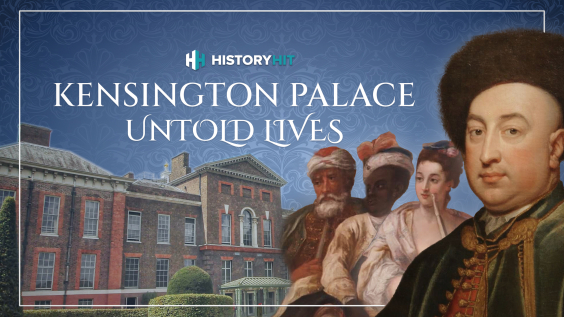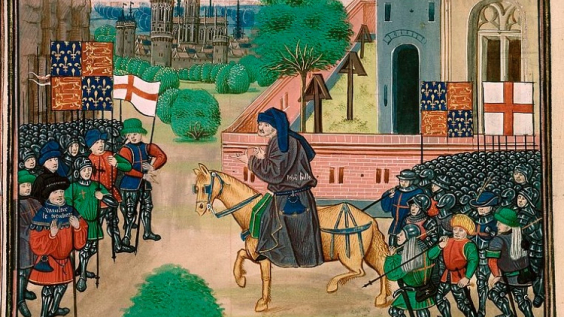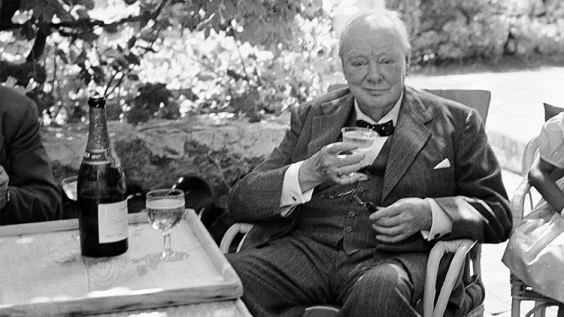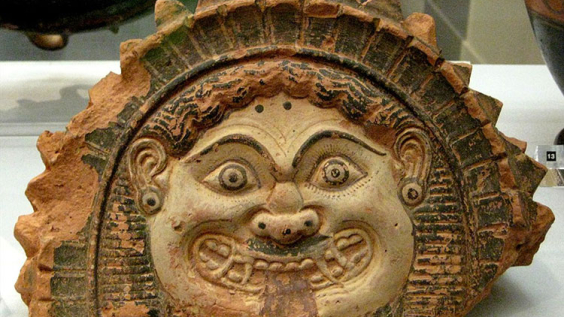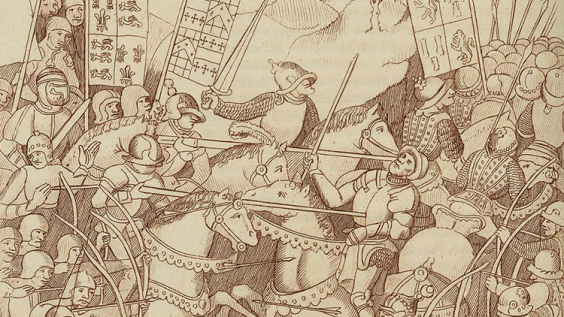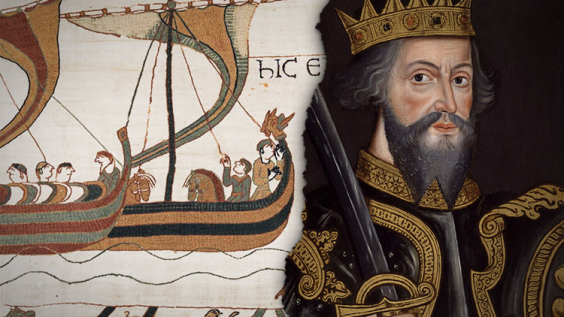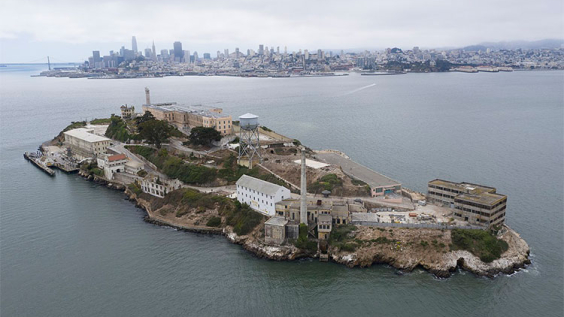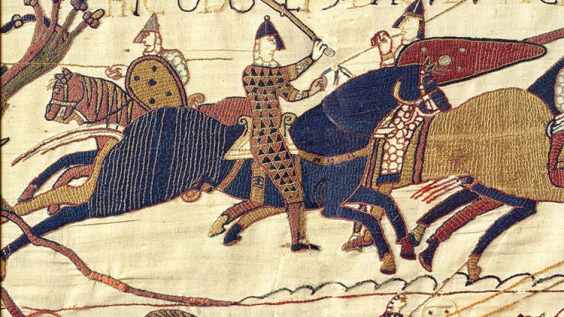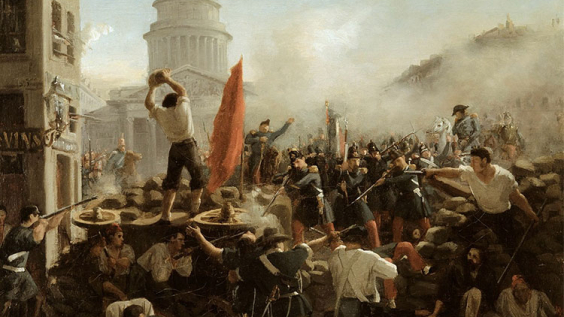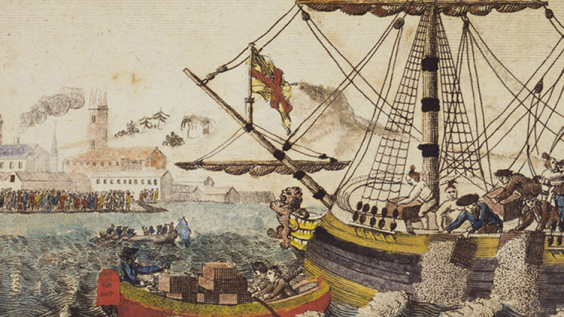
Hereward was an 11th century Anglo-Saxon rebel in England who resisted William the Conqueror with some astonishing exploits.
Hereward the Exile (not the Wake)
The epithet ‘the Wake’ first appears in relation to Hereward in the late 14th century. There is debate about what it means, with one interpretation suggesting it translates as ‘the Watchful’ because of his numerous escapes. Another theory asserts that the Wake family, who later owned land in Bourne associated with Hereward, gave him the name to link themselves to him dynastically.
A significant part of Hereward’s story that is largely agreed upon is that he was exiled before 1066 and was out of England when the Norman Conquest took place.
Hereward was a rowdy teenager. He was a bad sport so that if he lost a friendly wrestling match, ‘he would very often obtain with the sword that which by the mere strength of his arm he was unable’. Eventually, ‘his hand was against every man, and every man’s hand was against him’. His father, exasperated with his troublesome son, appealed to King Edward the Confessor and had Hereward exiled.
An Anglo-Danish Landowner
In his 1865 novel, Charles Kingsley christened Hereward ‘Last of the English’. He has long been considered an English hero, resisting subjugation and throwing off the Norman yoke.
Over the centuries, it was claimed that Hereward was a son of Earl Ralph of Hereford, who was married to Godgifu, a sister of Edward the Confessor. Other stories claimed his father was Leofric, Lord of Bourne, though no such man has ever been discovered, or Earl Leofric of Mercia and his wife, the famous Lady Godiva. None of these can be established as accurate.
One family connection that seems to give a real clue to Hereward’s identity is that some sources identify Abbot Brand of Peterborough as his paternal uncle. Brand had four brothers, the sons of Toki of Lincoln. The oldest, Asketil, is perhaps the most likely candidate to be Hereward’s father, and that would explain Hereward’s inheritance of the family’s lands. Toki was the son of Auti, a wealthy man from Lincoln.
These names all appear to have a Danish origin, and Hereward would receive support from Danish forces in England. Rather than being the Last of the English, he was more likely to have been of Danish descent. Toki’s youngest son was named Godric, a more English name, suggesting a possible Anglo-Danish family who had grown wealthy in Lincoln. Hereward’s father may have ranked as a thegn, an important local dignitary but not a nobleman.

Hereward the Wake urges his men to join him against the Normans. Date: circa 1070. (Image Credit: Alamy, Image ID: G3C86X).
Return from Exile
Hereward’s exile was a series of adventures that transformed a local troublemaker into an internationally renowned warrior.
He reached Cornwall, where he saved a princess from a local tyrant named Ulcus Ferreus (Iron Sore). From here he went to Ireland and became a champion of the King of Ireland. In battle, he and his men were always found ‘in the midst of the enemy’s wedges, killing to the right and left’. Next, Hereward was shipwrecked in Flanders, where he fell in love with a lady named Turfrida. Here, too, Hereward distinguished himself with feats of military brilliance.
The De Gestis Herewardi Saxoni – The Exploits of Hereward the Saxon – was written to detail Hereward’s life, though it doubtless embellishes his exploits. It states he returned to England, probably in 1068, because of ‘a strong desire to visit his father’s and his country which by then was subject to the rule of foreigners and almost ruined by the exactions of many’.
When he got there, Hereward discovered that his father had died and Normans had snatched his lands. Upset and enraged, he snuck into his ancestral home at night and slew all the Normans within.

Hereward the Wake fighting Normans (Image Credit: Public Domain).
Hereward the Adventurer
The returning bad boy quickly became a local hero, and many flocked to him, looking upon Hereward as their leader. The rebels eventually made their base on the Isle of Ely, an impenetrable area of dangerous fens impossible to cross safely by those who lacked knowledge of the region.
Also at Ely were the brothers Earl Edwin of Mercia and Earl Morcar of Northumberland. When William the Conqueror launched an assault on Ely, the causeway they had constructed using inflated sheepskins for buoyancy collapsed. One knight named Dada made it across and was well treated by Hereward before being released.
As the Normans planned their next move, Hereward snuck into their camp, cutting his hair and beard to disguise himself as a potter selling his wares. The cruel Normans taunted the man they took for a common craftsman, threatening to shave his head, pull out his beard, and blindfold him, scattering his pots around the floor so he smashed them all.
Hereward brandished a fire iron at them until a guard came. Stealing his sword, Hereward ran them all through and fled into the night.
 Watch Now
Watch NowA Respected Enemy
King William was convinced to employ a ‘witch’ for the next assault to curse those on the Isle of Ely. The causeway was rebuilt to be more sturdy, and as the witch pronounced her spell, the Norman soldiers began to pour across. When the causeway was packed, Hereward and his men spring from their hiding places and set the dry reeds on fire. The flames quickly engulfed the causeway, many soldiers burning to death or drowning in the marshes under the weight of their armour.
Ely was eventually lost when William seized the monastery’s lands, and the monks panicked. Hereward slipped away before the Normans took the Isle and hid in the Brunneswald, an ancient forest in Northamptonshire.

Illustration depicting Hereward’s before William the conqueror, after the fall of Ely. (Image Credit: Alamy, Image ID: 2CWBNB6).
Eventually, Hereward offered to appear before William to discuss peace. Some Norman barons arranged a fight that saw Hereward arrested and imprisoned at Bedford Castle for a year. He managed to escape while being moved and repeated his offer to do homage to William in return for his father’s lands. William accepted, impressed by his indomitable opponent, and Hereward lived out the rest of his days in peace.
How much of this is true is hard to say, but Hereward’s story is dramatic and exciting. The ending demonstrates that his aims were never really altruistic, but to secure what he believed was his by right. Nevertheless, his exploits would make for a fantastic film.



